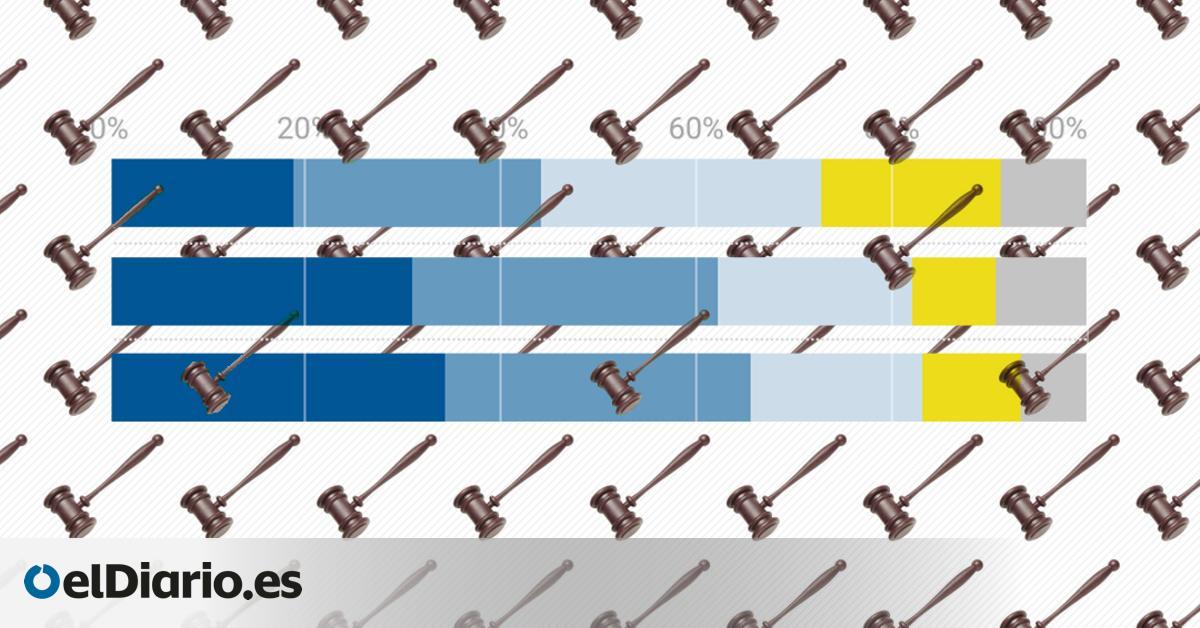
Years ago, politics extended its conflict to Justice. Beyond the clashes over investigations of corruption cases, some parties and organizations have long found a way to oppose in the courts: they have flooded their political adversaries with complaints to generate enough noise so that the suspicions spread had more echo than the file of those cases. On some occasions, the judges themselves have collaborated in this strategy.
It is known as ‘lawfare’ or judicial war, a concept born in Latin America and which in Spain made headlines when the investiture agreement between PSOE and Junts made reference to its existence in Spain.
Beyond the noise of that debate, the Simple Lógica survey indicates that a majority of Spaniards affirm that in our country ‘lawfare’ exists in some of its manifestations: either as the judicialization of politics or as its instrumentalization of justice, and 44% directly indicate that there are cases of judicial persecution.
All of this directly influences the perception of the judges. The survey indicates that 60% of Spaniards have little or no confidence in them, while 38% have a lot or maximum confidence.
The results by party leave PP voters as the only ones among whom there is generalized confidence in judges (59% have a lot or maximum). In the rest, distrust prevails: in Vox 61% have little or none, in the PSOE that percentage is 68% and, in Sumar, it reaches 73%.
These data are a direct consequence of the perception among citizens that the paths of politics and justice intertwine on too many occasions. 66% of those surveyed consider that in Spain there is instrumentalization of justice, understood as the parties using justice as a means to achieve a political or electoral goal.
Furthermore, 62% affirm that in our country there are cases of judicialization of politics. That is, political matters that could be resolved through non-judicial means are brought to court.
Regarding judicial persecution (the use of judicial procedures for the purposes of political persecution), respondents are more divided. 47% believe that these situations occur little or not at all, while 44% believe that they occur quite a bit or a lot.
By party, Sumar voters are the ones who most believe in the existence of cases of judicial persecution (69%), followed by those of the PSOE. In the PP, only 26% affirm that these types of cases exist in Spain.
But regarding the instrumentalization of politics or its judicialization, in all groups of voters they exceed 50%. For example, those from Vox are those who in the highest percentage (73%) believe that justice is a means to achieve a political or electoral end. It is paradoxical because it is precisely his party that has made the complaint against rivals a political weapon.
Source: www.eldiario.es

